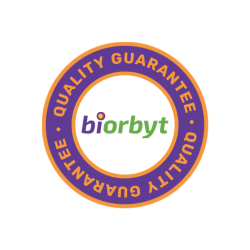You have no items in your shopping cart.
Cart summary

TCTP/TPT1 Protein, Human, Recombinant (His)
Catalog Number: orb1956200
| Catalog Number | orb1956200 |
|---|---|
| Category | Proteins |
| Description | Tumor protein, also known as TPT1, is a highly conserved protein among many eukaryotic organisms. Tumor protein is involved in a variety of cellular activities, including microtubule stabilization, calcium-binding activities, and apoptosis. The Mammalian translationally controlled tumour protein (TPT1) (or P23) is a protein that has been found to be preferentially synthesised in cells during the early growth phase of some types of tumour, but which is also expressed in normal cells. It was first identified as a histamine-releasing factor, acting in IgE +-dependent allergic reactions. In addition, TPT1 has been shown to bind to tubulin in the cytoskeleton, has a high affinity for calcium, is the binding target for the antimalarial compound artemisinin, and is induced in vitamin D-dependent apoptosis. TPT1 production is thought to be controlled at the translational as well as the transcriptional level. |
| Tag | N-His |
| Purity | 98.00% |
| MW | 21.4 kDa (predicted); 23 kDa (reducing conditions) |
| Expression System | E. coli |
| Biological Origin | Human |
| Biological Activity | Tumor protein, also known as TPT1, is a highly conserved protein among many eukaryotic organisms. Tumor protein is involved in a variety of cellular activities, including microtubule stabilization, calcium-binding activities, and apoptosis. The Mammalian translationally controlled tumour protein (TPT1) (or P23) is a protein that has been found to be preferentially synthesised in cells during the early growth phase of some types of tumour, but which is also expressed in normal cells. It was first identified as a histamine-releasing factor, acting in IgE +-dependent allergic reactions. In addition, TPT1 has been shown to bind to tubulin in the cytoskeleton, has a high affinity for calcium, is the binding target for the antimalarial compound artemisinin, and is induced in vitamin D-dependent apoptosis. TPT1 production is thought to be controlled at the translational as well as the transcriptional level. |
| Expression Region | A DNA sequence encoding the human TPT1 (Met1-Cys172) was expressed with a polyhistidine tag at the N-terminus. Predicted N terminal: His |
| Storage | -20°C |
| Note | For research use only |
| Application notes | A Certificate of Analysis (CoA) containing reconstitution instructions is included with the products. Please refer to the CoA for detailed information. |
| Expiration Date | 6 months from date of receipt. |


